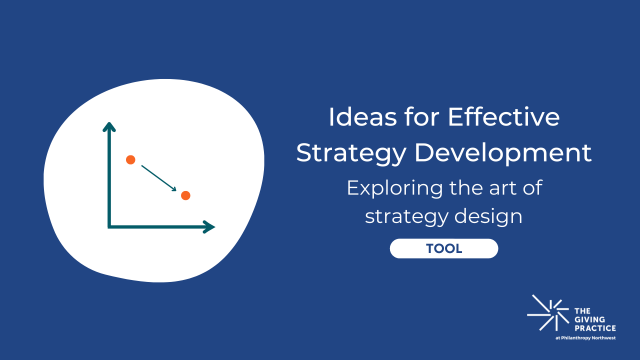by Audrey Haberman, managing director of The Giving Practice
I am just returning from a three-day convening at the Aspen Institute about place-based philanthropy. Over 50 national, regional and local funders gathered to discuss the craft of doing meaningful and effective place-based work.
A strong theme that ran through the case studies, best practices and lessons learned was how important and valuable it is to develop trusting relationships. Human connection and belonging are key to building community. When people are connected, seen and heard, they are better able to work together to find common vision and new solutions for their neighborhood, zip code, city or county.
The Northwest was not well represented here, especially given how committed many of our foundations are to place as a lens for our philanthropy, so I was especially pleased to see how well David Bley of the Bill & Melinda Gates Foundation was received as a panelist. He shared one measure of success he strives for: shifting ownership of problems and solutions from his team to the organizations and communities they invest in. What allows this to occur? Trust first, built through listening and transparency, followed by a combination of adaptive leadership and technical expertise.
Place based investments are more successful when funding supports relationship building among residents initially, and after listening to the community self-define its priorities, developing a multi-year commitment that matches the community priorities with the foundation’s goals. Many panelists shared examples of this give and take including The Boston Foundation, Kellogg Foundation and many others.
In order to create trust, funders need to be willing to change our original assumptions and frameworks as we learn more and work in the community. We should make a long-term commitment when we invest in a place. So, it was thought provoking when John Esterle of the Whitman Institute asked, “If trust is so important, how do we know it is there? And how can we as foundations better resource our staff to make sure trust is present?”
I like the idea of a trust checklist – what items would be on your list?


